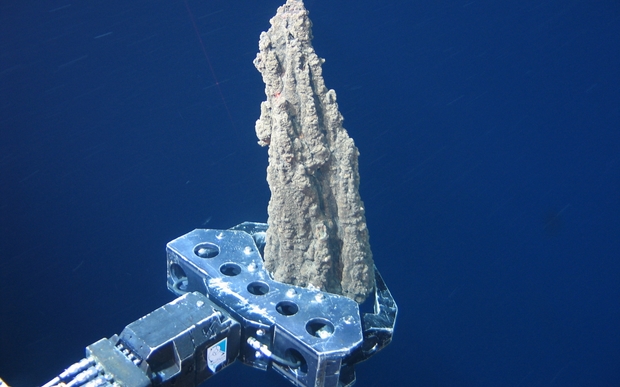KELLY MARTIN on ON THE TIDE | 15 December 2017
“Improved technology is also allowing humans to exploit deep ocean resources in ways that could be extremely damaging. Last month, Japan became the first country to successfully mine the deep sea on a large scale. A company called Nautilus Minerals is also now licensed to mine Papua New Guinea’s seafloor, with extraction set to begin in 2019. These developments could usher in a new era of deep-sea exploitation.
With the age of deep-sea mining seemingly on the horizon, scientists are rushing to understand the potential impacts of this new endeavor. Last month, a group of researchers from 11 countries presented the results of the ‘‘Mining Impact’ project coordinated by the GEOMAR Helmholtz Centre for Ocean Research Kiel, which found that any disturbances to deep-sea ecosystems from mining could last for many decades at the very least, and some important species of deep-sea corals have been growing for thousands of years. The findings of this study add to the mounting evidence that exploiting the resources of the deep ocean through mining, fishing, or other human activities causes devastating impacts on ecosystems in the deep.
Fortunately, conservationists and governments are already at work on a wave of new protections for deep sea areas.”
Read the full article on On The Tide – Blog of the Marine Conservation Institute




